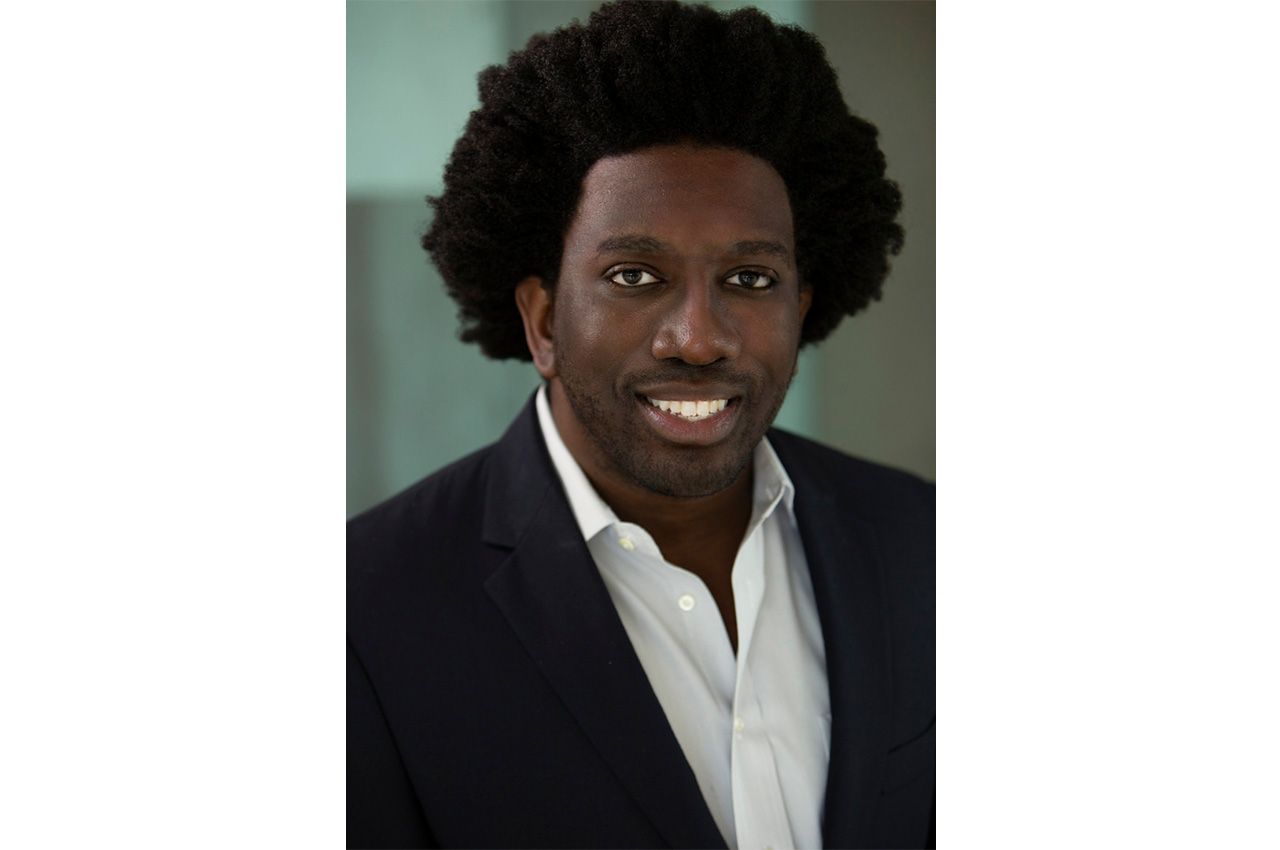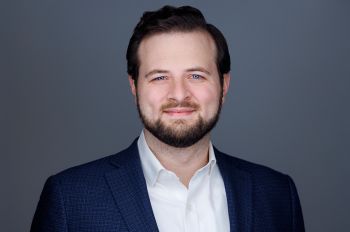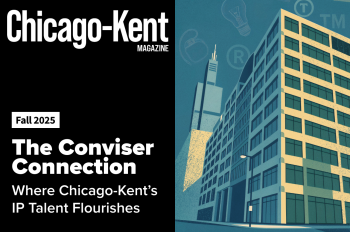Philosopher and Scholar Raff Donelson to Join Chicago-Kent Faculty, Focus on "Unexplored" Aspects of Criminal Law

With his career and scholarship deeply rooted in the twin fields of philosophy and criminal law, Raff Donelson has dedicated himself to “unexplored questions” about the fundamental concepts of law, punishment, and policing.
And come August 2022, Donelson will start teaching those concepts as an associate professor at Chicago-Kent College of Law. The move, he says, excites him for two reasons.
“It’s an awesome faculty with lots of people that I already know, like, and respect,” he says. “And I spent most of my adult life in Chicago; it’s the best city in our country, maybe the best city in the world.”
“Raff Donelson’s strong background in philosophy and impressive legal scholarship offers a fresh perspective to modern-day debates about policing and punishment,” says Chicago-Kent Dean Anita K. Krug. “His prolific research into essential, and often unasked, questions about criminal law makes him a wonderful fit for our law school.”
Donelson says he is excited to teach criminal law at Chicago-Kent, noting he has been teaching criminal procedure for the past five years. As both a lawyer and philosopher, Donelson sees criminal law as an area “where some of our most deeply held moral judgments become realized.”
“[For] people who study philosophy, a natural place for them to reside in the law school space is doing substantive criminal law,” he says. “Thinking about what ought to be the crimes, what ought to be the penalties, or what justifies punishment in general.”
But some rudimentary areas remain woefully unexplored, Donelson says.
“A lot of theorists like talking about ‘what’s the justification for having punishment?’….But not a lot of people actually explain what a punishment is,” he says.
For the past several years, Donelson has worked on projects exploring punishment. This began with the first paper he ever published, “Cruel and Unusual What? Toward a Unified Definition of Punishment,” which appeared in 2016 in the Washington University Jurisprudence Review. There, Donelson asks, “What kinds of things should we consider to be genuine, legal punishments such that we can get all the constitutional protections that are triggered once somebody is subjected to punishment?”
For Donelson, this question must be answered because much hangs in the balance. For example, is it punishment when a prisoner does not receive adequate medical care or when a prisoner is forced to work when sick? If so, the prisoner might be entitled to certain kinds of legal relief. If not, the complaint is unlikely to result in any changes.
Donelson once proposed that punishment be defined as “any sufficiently serious harm that is imposed in order to somehow get back at someone for a wrong.” One of his most recent papers, “Natural Punishment,” soon to be published in the North Carolina Law Review, offers an even broader definition of punishment. In this new article, Donelson suggests that harms befalling a person because of their crime—such as the death of a child when a parent is negligent—might be considered punishment, too. Donelson notes that some foreign jurisdictions already recognize such cases as punishment and take this into account during sentencing, offering offenders a punishment discount, as they were “already punished enough.” Donelson encourages American courts to do the same.
“We need a definition [of punishment] because various provisions of the Constitution deal with punishment, and we need a clear and compelling definition to know when and how those provisions apply,” says Donelson. In future research, “I’m sure I’m going to continue thinking more about what punishment is, especially in a society that is extremely punitive.”
As for other unexplored questions, Donelson also notes that “there’s not a lot of philosophy of policing, even among people who are philosophers of criminal law.”
One of his first papers, “Blacks, Cops, and the State of Nature,” published in 2017 in the Ohio State Journal of Criminal Law, argues that rather than seeing police departments as a mechanism of state-backed anti-Black racism, one should see them as not being under state control at all.
He argues that Black people and police “are locked in a Hobbesian state of nature” outside the law, replete with unchecked violence and distrust from which “there may be no escape,” because police officers have no incentive to change it, and Black people cannot.
He rejects the idea that such a dynamic is just how the United States system was designed as “conspiratorial.” The state, he argues, does not currently have the power to put checks on the police, who can use such tactics as “slowdowns” in service calls to push back against oversight. As an example, he points to the efforts of the New York mayor’s office in the wake of the killing of Eric Garner.
“It reveals that the police hold the purse; therefore, the elected government cannot fully control them and gets embarrassed when it tries,” Donelson writes.
Donelson completed his bachelor’s degree in philosophy at Williams College, in Williamstown, Massachusetts, in 2009. He moved to Chicago that same year to attend the University of Chicago, where he earned his master’s degree in humanities, with a focus on philosophy, in 2010. He then enrolled at Northwestern University to pursue his Ph.D. in philosophy. Midway through his Ph.D., he started at Northwestern Pritzker School of Law.
His Ph.D. dissertation, “When We Ask What Law Is,” explored the proper method for approaching questions in the philosophy of law. Philosophers of law usually ask questions like “What is the nature of the legal system?” or “Can there be unjust laws?”
“I was really interested not just in providing answers to those questions, but also in thinking about how we find the answers, what the proper methodology ought to be,” Donelson says.
Donelson’s interest in the law started in his undergraduate years; he wanted to apply his sharp thinking skills, honed in his pursuit of philosophy, to legal issues. Later, while earning his master’s, Donelson struggled over whether to focus on law or philosophy.
“I got convinced that I shouldn’t choose at all; I should do both,” he says.
After getting his J.D. and Ph.D. from Northwestern in 2017, he took a job as an assistant professor of law and philosophy at Louisiana State University. It was a position that the school had created just for him, teaching moral and legal philosophy within the philosophy department and criminal procedure at the law school. He then joined Pennsylvania State University Dickinson Law in 2020.
As for future projects, Donelson has been asked to write a Stanford Encyclopedia of Philosophy article on methodologies for the philosophy of law. He is also working on a book, Ethics Without Chicanery, which explores whether philosophical debate relating to ethical “meta-questions” has gotten too far away from the practical matters that inspired such questions in the first place.



